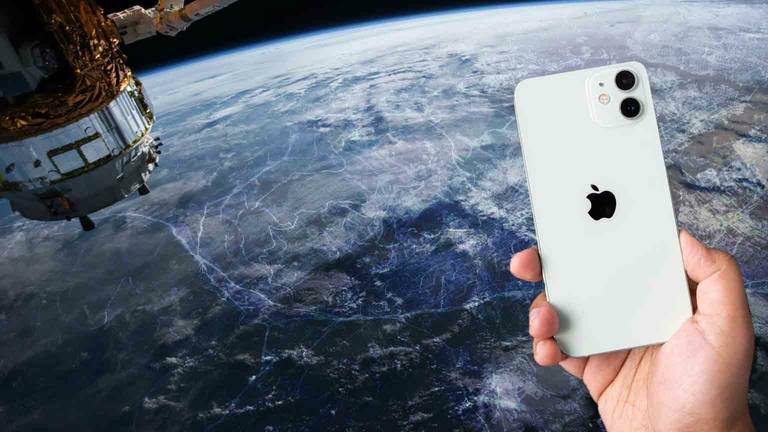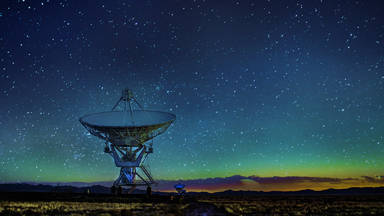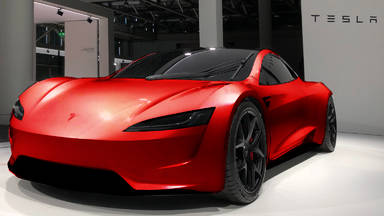
Apple announced in 2020 that it would be giving up Intel chips and use their own ARM CPUs in MacBook laptops. This decision effectively ended a 15 year partnership with Intel and came as a big surprise to those who weren't following the industry closely. With Apple's sales being reasonably stable, Apple was able to focus on diversifying its business and integrating various aspects of its business internally. And their next destination seems to be more surprising to many as they try to weed out Mobile Carriers and simultaneously compete with SpaceX.
We've all heard about Starlink and what SpaceX wants to achieve with Starlink. SpaceX is essentially launching 1000s of satellites in the sky to provide fast, reliable satellite-internet to rural areas around the world. This is a very smart idea as broadband providers don't support rural areas or apply monopolistic pricing systems while still providing terrible service. So this market is undoubtedly ready for a shock, and Starlink is likely to be very successful with this population. Despite these advantages, Starlink ultimately only addresses a demographic niche.
The vast majority of people live in large cities or on the outskirts of large cities. Broadband internet service providers are pretty competitive in these areas. Not to mention that many of these areas have fiber optic internet access that Starlink cannot compete with, at least yet. However, There is one significant market which SpaceX is leaving on the table, and that is the cellular operators market.
Fast and reliable satellite internet for cell phones makes a lot of sense. Even in the largest cities in the world, mobile communications are often imperfect in many areas. Having a satellite internet provider for your cellphone is very useful, especially as it increases reliability.
Of course, satellite internet can't keep up with the top speeds of 5G. But here's the thing, 5G isn't perfectly reliable at this point and hardly anyone needs those speeds on their phone. When it comes to mobile services, reliability is usually more important than speed. So if satellite internet can significantly improve reliability at a similar cost, then you most likely will choose the satellite internet option.
Given this huge opportunity, why didn't SpaceX target this market? Well the answer is, they can't. Satellite internet requires the receiver to have a dedicated dish or antennas to receive signals from space. Therefore, SpaceX needs the collaboration of cell phone manufacturers to enable satellite cellular service. On the other hand, Apple is a manufacturer of cell phones that can integrate satellite functions into the iPhones if desired. And that is exactly what they seem to be doing.
Bloomberg reported in December 2019, that Apple is recruiting dozens of engineers who specialize in the development of satellites and antennas. Apparently, this secret team is developing a way to broadcast the internet to iPhones, iPads, and Macs straight from space. This technology already exists, but satellite phones are very large and bulky. Then maybe this team will focus on building this compact and transparent technology.
Apple also needs satellites in orbit to provide the internet service. The cheapest way to launch their satellites will likely be through SpaceX. Ironically, SpaceX would be helping Apple to start its own Satellite Internet business. However, Apple is not required to use its own satellites. They can simply choose to lease part of the Starlink constellation, or even work with SpaceX to deploy satellites. But since Apple can easily afford to develop and manage its own constellation, this scenario is unlikely.
Will Apple's Carrier service become popular?
Apple is known to price high. Well, while this applies to a lot of their top notch products, it actually doesn't apply to their services at all. In fact, Apple is very competitive when it comes to its services. For example, Music and Spotify subscriptions. Both charge $9.99 per month for their individual plans and $14.99 per month for family plans and $4.99 per month for their student plans. Also, Apple Music has a more inclusive music library and better integration with Apple devices for obvious reasons. This is the same with iCloud and Google Drive. The cheapest tier from Apple offers 50GB for $0.99 per month, while the cheapest tier from Google offers 100GB for $1.99 per month. The price for one gigabyte is the same, but Apple already has the cheapest entry price. Both companies also offer 200GB and 1TB levels for the same price.
However, let's take a look at how profitable this business is. In early 2021, Apple announced that more than 1 billion iPhones were in active use. Even if Apple could only capture 10% of carrier market, it could build a subscriber base of more than 100 million customers. And frankly, it wouldn't be difficult for Apple to make, given its success with subscription services to date. For example, Apple Music had a total of 72 million paying users as of the end of 2020. But even that pales in comparison to their total paying subscriber base of more than 600 million customers.
Also, keep in mind that all of these customers purchase optional services. You don't really need Apple Music, Apple TV, or iCloud. But almost everyone who buys an iPhone needs a cellular service. And when satellite internet is more reliable and Apple can be competitive on price, the choice of Apple-Wireless (or whatever the name will be) is obvious. It lets people get better wireless service from Apple for the same price. In addition, Apple will likely offer bundles with its other services that can potentially save you money by switching to Apple-Wireless.
It is also possible that many people will switch just to move away from the old carriers that people despise. For example, AT&T has a 1.2-star customer rating with 91% of customers having a 1-star experience. Likewise, Verizon has a 1.3-star rating with 86% of customers having a one-star experience. With that in mind, it wouldn't be too difficult for a company like Apple to get 100 million subscribers worldwide.
Right now, Apple's price-to-earnings ratio (P/E ratio) is around 30, which means the company is worth 30 times its annual income. Even at this rate, Apple Wireless would add $500 billion to Apple's market value. Things get really interesting when Apple gets more of the cake, which is very likely.
For example, if Apple had 300 million cellular subscribers, it would generate approximately $252 billion in revenue and $75 billion in net income. Even at a P/E ratio of 15, Apple's wireless network would add more than $1.1 trillion to Apple's already enormous market value. Ultimately, because of the inadequacies of traditional cellular services, there is a huge untapped market for cellular satellite services and Apple is uniquely positioned to develop a monopoly focused on providing this service to the billion iPhone users around the world.









